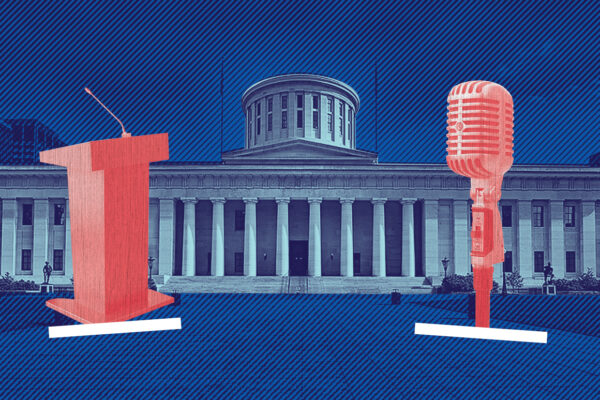To Chairwoman Abrams, Vice Chair Williams, Ranking Member Brown, and members of the House Criminal Justice Committee, thank you for this opportunity to provide opponent testimony on House Bill 295.
HB 295 appears to be two separate, unrelated bills combined into one as one section addresses online material that is harmful to juveniles or obscene. The other is about the unauthorized dissemination of “deepfake” images. I appear today to testify only on the harmful to juveniles/obscenity portion.
This particular part of HB 295 requires those who exhibit, disseminate, sell, or furnish such material online to confirm no one under 18 years of age has access to it. Those convicted for violations of this section seem likely go to prison as violations are a felony of the third degree.
Harmful to juveniles laws of this type have long been a thorn in the side of free speech advocates. For example, over the decades, these laws have been weaponized against movies, music, books, comic books, video games, magazines, sex education, plays and other live performances, and the internet.
Historically, these laws create conflict between the rights of adults, and often minors, to access constitutionally protected speech and information against the goal of these laws to censor this same material for those under 18.
Furthermore, such laws are typically written in a way to make it nearly impossible to accurately or adequately decipher what the law demands. This reality, combined with threats of imprisonment and/or fines found in such laws, mean much speech is, or may be, abandoned as creators or speakers self-censor so they do not violate the law or someone’s interpretation of it.
Consider what Ohio’s current harmful to juvenile law requires from those who disseminate all kinds of online information some may find objectionable. That is, Ohio law requires those responsible for the material and information to determine is the material in question “patently offensive to prevailing standards in the adult community as a whole with respect to what is suitable for juvenile.”
This requires the person providing the speech to 1) somehow, some way conclude what is “patently offensive;” 2) how someone, somewhere may define “prevailing standards;” 3) for an entire “adult community;” 4) whether that community is local, statewide, countrywide, or worldwide; and 5) what exactly is, or is not, “suitable for juveniles,” all within the context of material that represents or describes “nudity, sexual conduct, sexual excitement, or sado-masochistic abuse in any form.” And, to be clear, this not a complete list of everything a person, organization, or business in question must consider under Ohio’s expansive harmful to juvenile laws. There is plenty more.
Given these broad, nebulous terms and requirements, it should be no surprise some will choose not to speak and others will attempt to dilute their speech to a level that is acceptable to the most easily offended individual person, prosecutor, judge, or jury. Indeed, this is a problem with current law and HB 295 doubles down on it.
Over the decades, courts have also routinely struck down laws that burden the ability of adults to view or read constitutionally protected speech in order to deny access by minors. Among other considerations, those courts have been concerned any burden on adults to access speech opens the door for additional, perhaps never-ending, restrictions and laws in the future. These judges and courts are protective of the First Amendment because they are well aware of the slippery slope nature of politicians and censorship. One foot in the door is never enough; soon or someday, it is another foot, legs, hands, elbows, everything. Their caution and concern is warranted.
Finally, there is something to be said about parental control and not involving government, law enforcement, courts, and incarceration. Software that filters and/or blocks online content is widely available and inexpensive, much of it free. This allows parents to limit or block access for their own children without requiring the same be done for all minors and without burdening adults. This is far preferable to requiring those who provide online content to wade through First Amendment minefields and numerous interpretations of what the law requires.
Members of this committee, there is a ton more to say and much more that should be considered when entertaining bills like HB 295. For the sake of brevity, I hope I have been helpful in hitting the high points. For all the reasons mentioned and more, the ACLU of Ohio urges you to protect free speech and reject House Bill 295.


